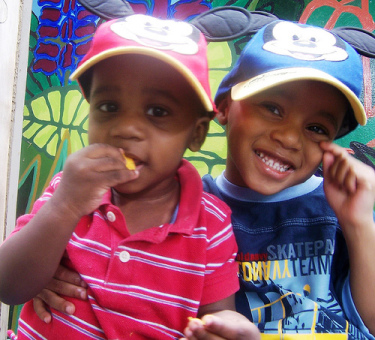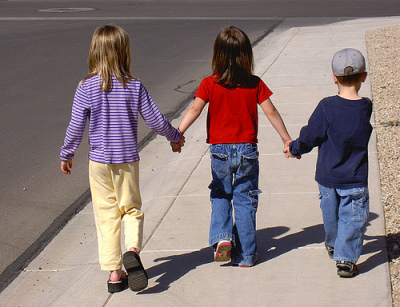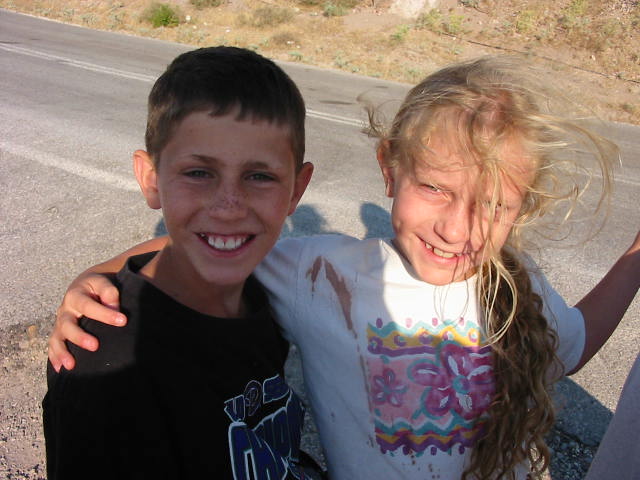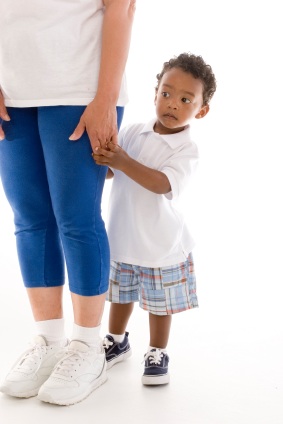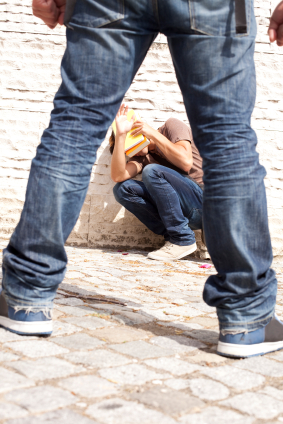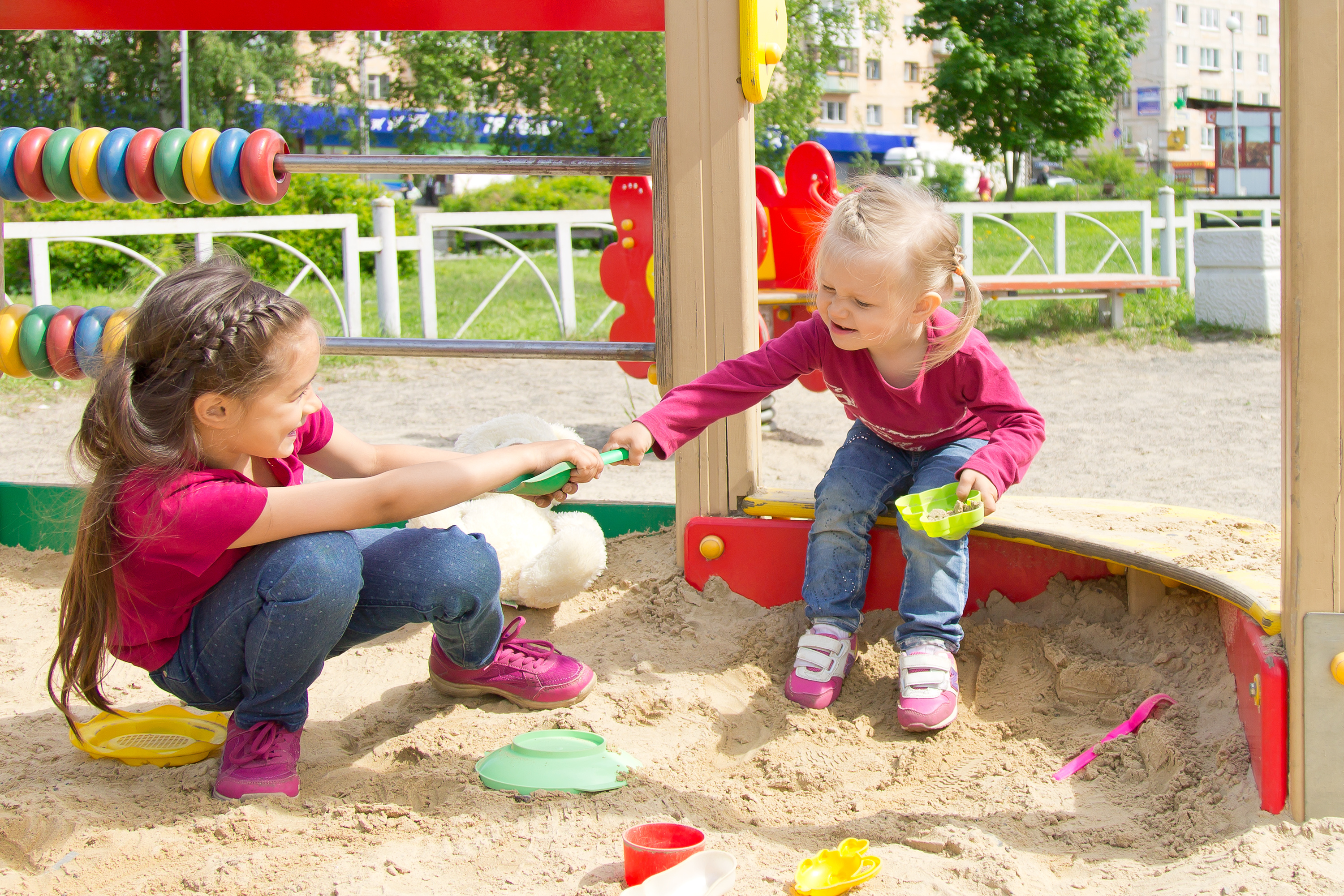How To Raise a Socially Intelligent Child
Your child lives in a very complicated social world. This has always been true for children: all parents can remember their own tears or rage at the cruelty of another child; all parents can remember wanting desperately to be accepted and approved of by other kids. Most of us can remember, at some point in our lives, longing for a best friend.
Things are even more complicated for children now, as media has introduced children to the world of adult mores before they are emotionally ready. Most children do not know, just instinctively, how to build good relationships with other children in such a culture of shifting rules.
Luckily, healthy kids tend to make healthy choices, even in the context of difficult peer situations. That means that if children have good relationships at home they have a healthy head start, but they still need your help in learning to navigate a complex social world. Some basics on how to help kids develop the social skills they need:
- Foster good social skills from toddlerhood on. This is one of the most important skill sets your child will ever develop. It is almost certainly more important to her future happiness than helping her develop her intellect.
- Support his friendships. Honor and reinforce your child's developing friendships. Talk about them, remember them, create opportunities to play. Remember that children get aggravated with each other, just as adults do. It doesn't mean the end of a friendship, necessarily, just that they need help to work through the issues that come up.
- Model respectful relating. Remember that your child will treat others as you treat her. In addition to the obvious everyday respect, that means that you give her criticism in private, not in front of others, including her friends. Which means you have to find tactful ways to talk to your young child and other kids about the way they are treating each other, to help them work out difficulties when they play together.
- Teach your child that people are important. All parents have to choose their battles, so put up with messiness and dawdling if you must, but teach your child consideration for others. Model it for him early on, admire it when he exhibits it, help him brainstorm to solve peer problems, and don't let your child intentionally or unintentionally disrespect another person. It you can't confront it as it happens without embarrassing your child, be sure to talk about it later. As kids get older, you may need to be very explicit about insisting that they acknowledge adults in their presence, as well as other kids. Often preteens and young adolescents need to be reminded of this, and to be given coaching on how to handle interactions that feel awkward to them.
- Teach kids to express their needs and wants without attacking the other person. For instance:
- "I don't like it when you push in front of me like that" instead of "You're mean!"
- "I need a turn, too!" instead of "You're hogging the ball."
- Help your child learn how to repair rifts in relationships. When we think about repairing relationships, we usually focus on apologizing. But premature apologies won’t be heartfelt and may backfire by causing the child to hold a grudge. Giving them a chance to cool down first always works better. Apologizing is a very useful friendship skill that doesn’t come easily to people in our culture, mostly because we feel like it indicates that we are bad or wrong for making a mistake to begin with. But all human relationships will have conflict, and kids are still learning how to handle conflict. So be sure not to make apologies into a public shaming, or your child will always resist them. And be sure that you're modeling apologies. If you never apologize, they won’t either. If you apologize graciously and often, to them and to others, they will too. The secret of helping kids learn to apologize is not making the apology into a punishment.
Below, more specifics for various ages.
Start Here:
Social Intelligence for Toddlers
Any parent of a toddler knows that it isn't easy to teach them social skills. That's because even though toddlers want to have happy, friendly, interactions with others, their own fears and desires get in the way. They can't help wondering: Will that child grab their toy? Can they get the truck before the other child? If they push the other kid off the trike and speed off, will they get away with it?
Read MoreSocial Intelligence for PreSchoolers
Preschoolers are social creatures, generally very interested in other kids and quick to notice and adopt social norms. They're becoming more able to control themselves, and more able to verbalize their feelings, opening up a host of options beyond hitting and screaming. It's the perfect opportunity to teach them social habits that will support them throughout childhood.
Read MoreSocial Intelligence for Elementary Schoolers
In elementary school, alliances often shift. Some children seem to easily find a welcoming group of friends; others struggle to get along or to find other kids who share their interests. Some children make a best friend; many wish they could. Here's how you can help your child take their social skills up a notch and work through issues with friends and peers.
Read More13 Tips to Help Children Manage Social Anxiety
“Probably the worst thing to do is to say, 'Don’t be shy. Don’t be quiet.' This is not about trying to change the child’s temperament. It’s about respecting and honoring temperament and variation, and helping children navigate the world with their own instruments." - Dr. K.R. MerikangasRead More
12 Ways to Empower Your Child Against Bullying -- Including CyberBullying
What is bullying? StopBullying.gov defines "bullying" as repeated unwanted, aggressive behavior in which a child or teen uses a real or perceived power imbalance, such as physical strength, access to embarrassing information, or popularity, to control or harm other kids. It can include anything from spreading rumors to name-calling to physical aggression, but this is not simply being rude or unkind once. Essentially, Bullying is a repeated, purposeful abuse of power, meant to cause harm to the other person.
Read MoreHow do I stand up for my toddler at the playground?
Dr. Laura,
Now that my 2 year old is socializing more, I need advice about handling playground interactions.
She was at the sand box and realized someone had left the community shovel that they use at the other side of the park. She walked all the way over to the other side of the park to get it. When she returned to the sandbox, another 2 1/2 yr old boy took it from her before she had a chance to use it. The mom didn't intervene and I feel awkward "parenting" someone else's kid. My 2 year old looked to me for guidance, but I wasn't sure how to handle it so I didn't say anything. I found a pail and offered it to my daughter to see if she wanted to scoop sand with that instead. She didn't, of course.
So I said, "We'll let Oliver have a turn and then you can have a turn." So Oliver had a turn, then Aurora was able to get her hands on it after he'd thrown it to the ground. Then as soon as she picked it up, he grabbed it again. Again, the Mom was right there but didn't say anything. In the car I explained that sometimes she'll come across people who don't share and that sometimes can be mean. And that it was nice of her to let Oliver have the shovel. But part of me is crushed thinking I should have stuck up for her and let her know that it's ok to not let people walk all over her.
What to do in this situation so I know for next time?
Thank you!
